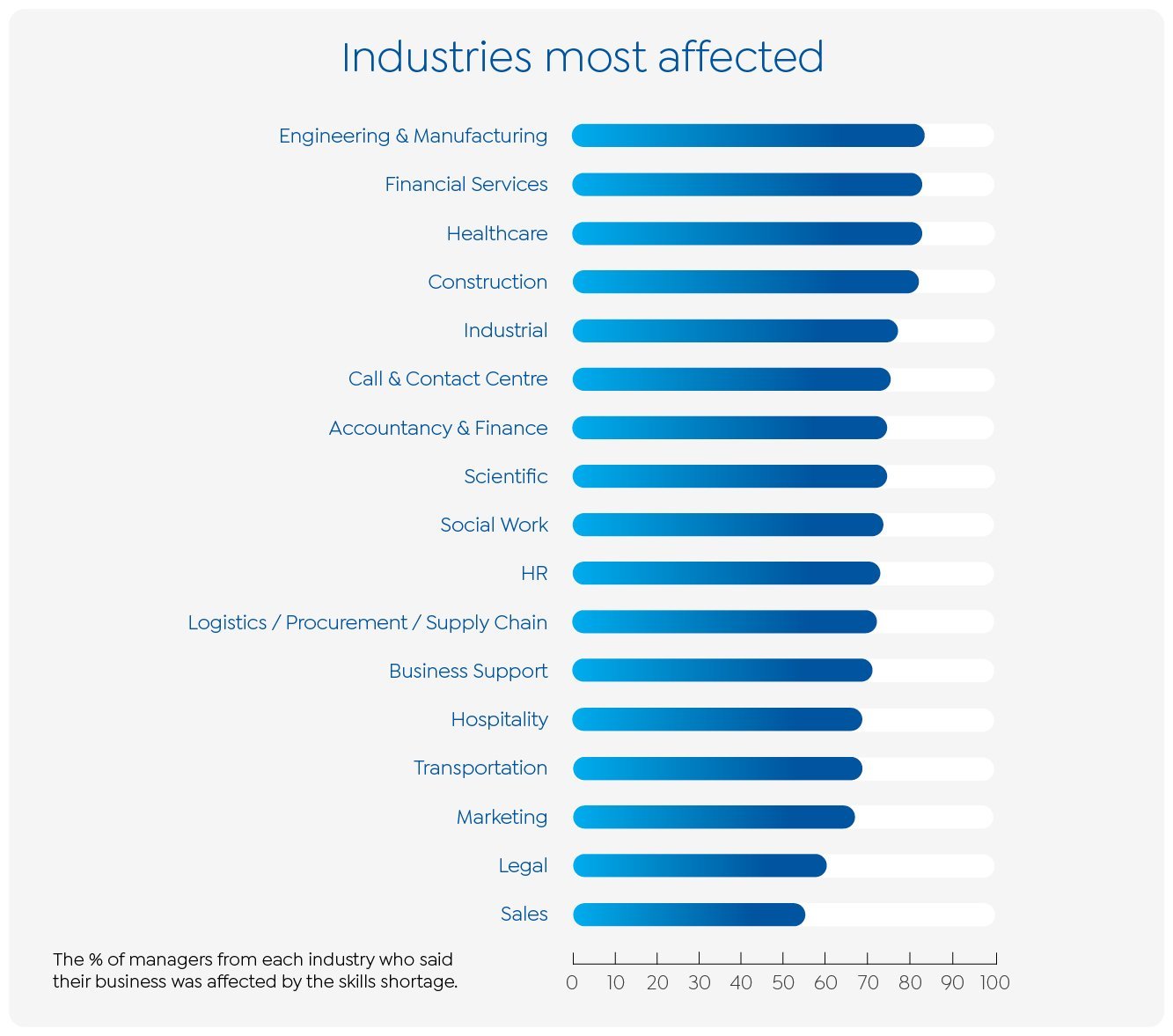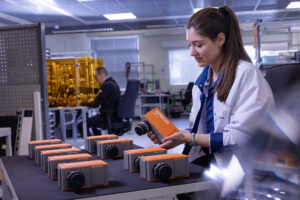The report found the engineering and manufacturing industry has been most affected, with 85% of senior managers explaining that their business is struggling. The reality of the issue presented by the report is emphasized by a 2019 statement from the British Chambers of Commerce which said the manufacturing industry was facing the biggest skills shortage in 30 years.
Richard Vickers, CEO of Search said, “Three-quarters of businesses are impacted by skill shortages – an issue that is costing UK businesses £6.3 billion per year in temporary staff and training for workers who are not as experienced as required. The skills gap isn’t a problem that is going away without substantial effort and it is certainly not one we can ignore.”
Search found that the most in-demand job by title is nurses, with COVID-19 being a significant contributing factor, closely followed by IT managers and engineers. Engineers in various disciplines including electronics, M&E and civils are featured on the official UK Government “Skilled Worker Shortage” database.
Both the Engineering and Manufacturing and Scientific sectors identified being proactive, possessing a good attitude, resilience, work ethic and emotional intelligence as the most important skills lacking in their potential employees.
Search says the impact of the skills shortage doesn’t just disrupt internal processes in the short-term but can have a long-term effect on relationships with clients and customers. 28% of managers that were surveyed admitted to poor quality of work being produced and a further 26% were unable to fulfil work commitments to clients and customers. Search found that in Science-based businesses, more than 50% of staff are working longer hours. The result of poor or unfulfilled service is detrimental to all sectors, but none more so than for the Engineering and Manufacturing and Scientific sectors where timing and consistency are essential to work.

Managing Director of Driving, Engineering & Manufacturing, Hospitality and Industrial, Richard Westhead sees the issue as particularly important for the UK’s manufacturing industry. He said, “The food & drink sector is the UK’s largest manufacturing industry and the demand for staff currently exceeds supply. The significant growth and continual focus on new products in this sector also mean there is an increase in food science and new product developments roles which are amongst the most difficult to recruit. Engineering roles still remain as the key skill shortage within the industry.”
There is hope, as organisations across the UK implement measures to close the skills shortage gap. One-third of businesses say they have introduced an increasing amount of internal training for staff to elevate their skillsets. A further one in five has also invested in external training. The science industry is attempting to remedy the situation as one-third say they have invested in new technology to help fill the skills shortage.
The technologies include the use of AI and automation as businesses explore software that can help streamline processes and reduce the need for physical intervention from humans. Companies like Teledyne e2v and Yumain are collaborating on new AI-based imaging solutions, whilst others like Herga Technology continue to develop footswitch receivers that emulate PC keystrokes and mouse clicks.
It is these advancements that may, as Westhead says, “show people that a career in engineering & manufacturing is engaging, innovative and provides candidates with limitless potential to grow.”
You can find more information about Search here. For more from MVPro, click here.
















